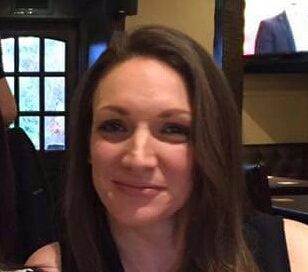Lisa Imrie is a Proteomics Specialist at the University of Edinburgh and a graduate of Edinburgh Napier University with a degree in microbiology and biotechnology. She has recently started her PhD studies taking a unique perspective in the analysis of biosamples from the VISICORT Foundation Biobank.
Danielle Nicholson, Pintail Limited caught up with Lisa Imrie after the latest plenary meeting in Galway to pose a few questions about her PhD research. In this interview (1 of 2), Lisa discusses her PhD project, how new techniques in the lab and with the data set analyses will carry the results of VISICORT forward and contribute to the field of proteomics.
What is the main focus of your PhD project?
To characterise different eye tissues and identify clinically relevant biomarkers in both keratoconus and Fuch’s Endothelial Corneal Dystrophy (FECD) using a multi-omics approach.
Why have you focussed on that in particular? What is it that interests you about it?
Until recently my career has been very technically orientated as I currently provide a proteomics service for a mass spectrometry core facility within the University of Edinburgh. This has allowed me a brief snapshot of other researcher’s work however I’ve never had any biological research of my own to focus on. In 2015 I was charged with helping the groups postdoc, Khadar Dudekula, with her proteomics profiling of eye tissue samples from the VISICORT project. This area of research piqued my interest and from becoming more involved in the sample analysis and also attending the plenary meetings it became apparent that there was massive scope to carry this research forward in any number of directions. Within my facility, I have a number of high-end mass spectrometers that can carry out various “omics” analyses so this PhD project seemed like a golden opportunity to utilise them to analyse the large number of samples available to me within Biostor Ireland. There are thousands of samples within this biobank so it was sensible to narrow down my thesis question and focus on looking at a couple of conditions to start with (keratoconus and FECD).
“It is really gratifying to see how the VISICORT project has led to the development of a new and exciting approach for analysing the invaluable collection of our biological samples. We can look forward to being able to identify important new and medically important Biomarkers from Lisa’s VISICORT-inspired PhD.”
Professor Malcolm Walkinshaw, University of Edinburgh
Read Lisa’s interview in its entirety here.
Learn more about VISICORT at www.visicort.eu, on Twitter @visicort and on Facebook https://www.facebook.com/visicort/. You can also find information on LinkedIn and Research Gate.
VISICORT has received funding from the European Union’s Seventh Framework Programme for research, technological development and demonstration under grant agreement no 602470. The material presented and views expressed here are the responsibility of the author(s) only. The EU Commission takes no responsibility for any use made of the information set out.

